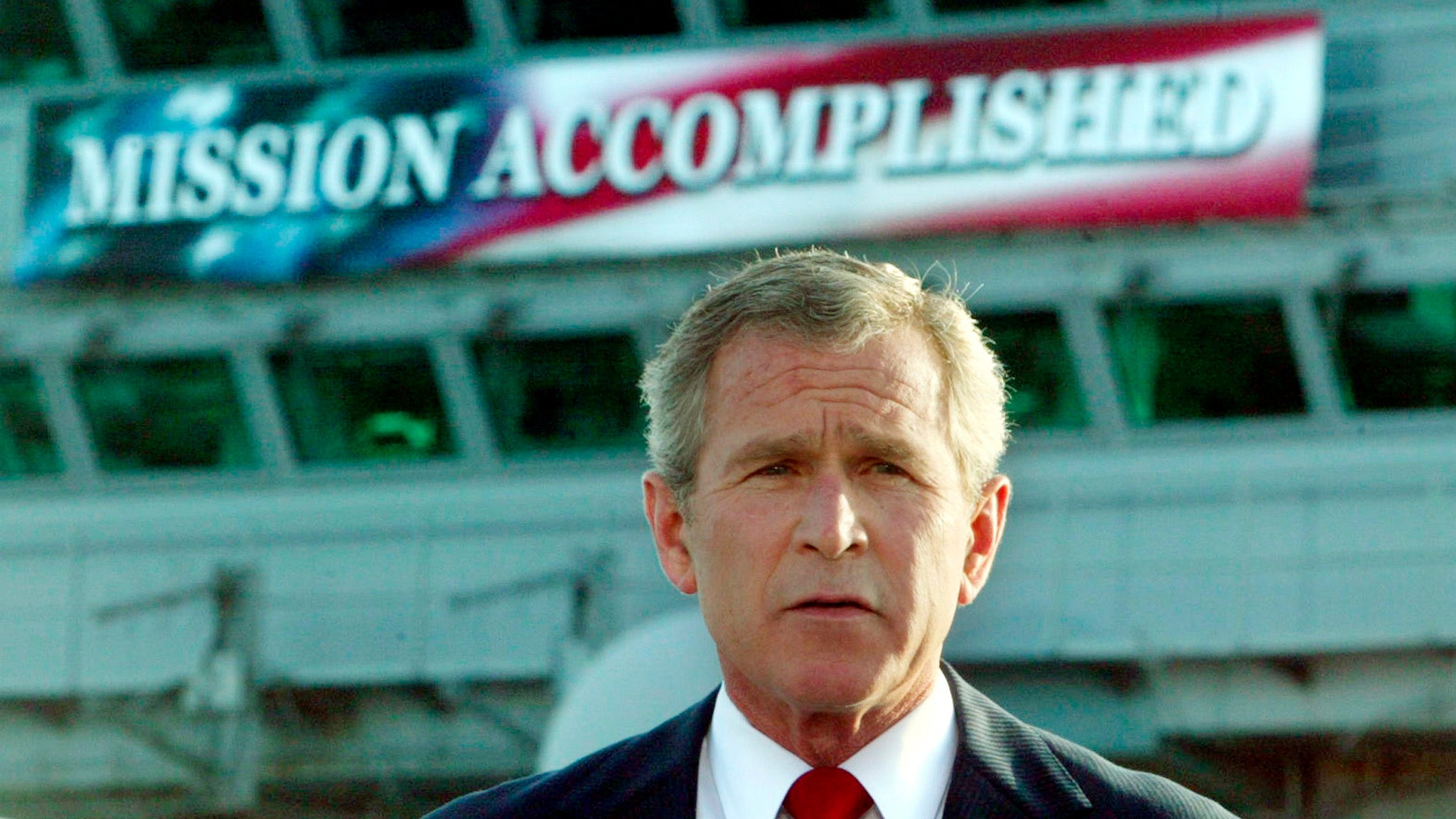House votes to repeal war powers granted for invasion of Iraq
The powers first given to George W Bush were subsequently used by Barack Obama and Donald Trump

Your support helps us to tell the story
From reproductive rights to climate change to Big Tech, The Independent is on the ground when the story is developing. Whether it's investigating the financials of Elon Musk's pro-Trump PAC or producing our latest documentary, 'The A Word', which shines a light on the American women fighting for reproductive rights, we know how important it is to parse out the facts from the messaging.
At such a critical moment in US history, we need reporters on the ground. Your donation allows us to keep sending journalists to speak to both sides of the story.
The Independent is trusted by Americans across the entire political spectrum. And unlike many other quality news outlets, we choose not to lock Americans out of our reporting and analysis with paywalls. We believe quality journalism should be available to everyone, paid for by those who can afford it.
Your support makes all the difference.The US House of Representatives voted to repeal a 2002 resolution that authorised the invasion of Iraq and gave the White House broad war powers.
The vote passed 268 to 161, with 49 Republicans crossing the aisle to join 219 Democrats to remove the “Authorisation for Use of Military Force Against Iraq” (AUMF) first granted during the presidency of George W Bush but since used by his successors as justification for military action in the region.
The broad-ranging powers were used for the US’s campaign against the Islamic State under Barack Obama and more recently by Donald Trump for the drone strike that killed the Iranian general Qassim Suleimani near Baghdad International Airport in 2020.
The push to wind back broad war powers of the Executive Office of the President comes after Joe Biden used article 51 of the United Nations Charter under the international right of self-defence as justification to bomb Syria just weeks after taking office in February 2021.
The Biden administration supported the bill in a statement this week, saying it was likely to have minimal impact on military operations as the US has no ongoing activities that rely solely on the 2002 powers.
The 2001 AUMF, passed a year earlier to authorise the invasion of Afghanistan, remains in place as a justification for military action against terrorist organisations across the globe.
The bill will now move to the Senate, where the majority leader, Chuck Schumer, said on Wednesday he would put a similar bill already drafted by Tim Kaine on the Chamber floor this year. It would be considered next week by the Foreign Relations Committee.
Despite the Democrat push to repeal the law, Senate Minority leader Mitch McConnell indicated on Thursday that Republicans could move to block its passage in the upper chamber of Congress. Democrats need GOP support to achieve the 60-vote majority to pass the bill.
"The fact of the matter is the legal and practical application of the 2002 AUMF extends far beyond the defeat of Saddam Hussein’s regime," Mr McConnell said in a speech on the Senate floor. "And tossing it aside without answering real questions about our ongoing efforts in the region is reckless."
Join our commenting forum
Join thought-provoking conversations, follow other Independent readers and see their replies
Comments